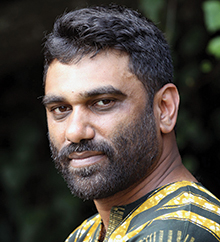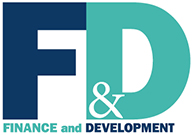Point of View
Zulu Sushi and Other Hopes
Finance & Development, December 2016, Vol. 53, No. 4
Globalization has offered little to Africa

As an African I cannot oppose globalization: it gave me sushi. South Africa has fused this delicacy with the country’s love of raw steak—“Zulu sushi,” it is proudly called. Conceptually, globalization is our vision for Africa: economic, technical, and even culinary integration, applied worldwide. It can mean shared responsibility for the welfare of all humankind.
But this is not the globalization we in Africa have witnessed, which enriches the few at the expense of the many. In Africa today, it is a tale of foreign interests undermining domestic control.
Unfair rules
Initially young African nations hoped the Uruguay Round of multilateral trade negotiations would offer market access to the developed world. But the economic elite supported rules that favored advanced economies—and pressured African and other developing economies to obey (Kumar, 2002). Bilateral investment treaties and free trade agreements promoted by the richest countries entrenched their dominance and generated an uneven bargaining environment.
Thirty years later, the World Trade Organization members have yet to support inclusive and sustainable growth. The failure of the Doha Round last year symbolized the imbalance between developed and developing economies (Keating, 2015). Policies that protect industrialized countries, home to most of the rule makers, allowed them to grow into the giants they are today. But these economies need continuous feeding and—along with emerging market economies, including China—are now pursuing resources and markets in Africa.
Demand for Africa’s resources has driven the continent’s economic growth: over 5 percent a year on average for the past decade. But it has also spurred illicit financial outflows by foreign governments and multinational companies—$850 billion between 1970 and 2008 (UNECA, 2015).
Policies behind this welcome growth entrenched inequality and poverty. During the past decade of trade liberalization and higher overall output, inequality within countries increased (Ortiz and Cummins, 2011). Workers competing for jobs in the global marketplace drive down wages, and competition between countries can mean social expenditure cuts and less progressive taxation.
Despite improvements in official global poverty figures in the past 50 years, 48.5 percent of Africans live on less than $1.25 a day. Half a continent, half a billion Africans, live in absolute poverty, two-thirds live on less than $4 a day, 90 percent are below middle class—those living on $10 to $20 a day.
Income doesn’t tell the whole story. Africans survive on so little only because at least two-thirds depend on agriculture alone, with no way to improve their lot. And the wolf is at the door. Worldwide, more than 115 million acres of farmland have been acquired by foreigners, mostly in Africa (Kachika, 2011). Such land grabs have left millions homeless or slaves on their own land and threaten the food security and livelihood of the poorest Africans.
Billions of losers
So our globalization is a story of very few winners and billions of losers; of unequal partners, inequality, and suppressed development; and of continued exploitation and exclusion. The rules are not working for us; they never have. But African governments don’t dare question the system for fear of gambling away the financial well-being of their economies.
Africans must rise up and take back what is ours—demand that our governments be accountable to us first, expose corruption, eradicate poverty, and roll back inequality while combating climate change and honoring our beautiful, generous, and forgiving continent. ■
References
Kachika, Tinyade, 2011, Land Grabbing in Africa: A Review of the Impacts and Possible Policy Responses (London: Oxfam International).
Keating, William E., 2015, “The Doha Round and Globalization: A Failure of World Economic Development?” (New York: CUNY Academic Works).
Kumar, Pranav, 2002, “Impact of the Uruguay Round on the Multilateral Trading System,” in The Reality of Trade: The WTO and Developing Countries (Ottawa: North South Institute).
Ortiz, Isabel, and Matthew Cummins, 2011, Global Inequality: Beyond the Bottom Billion—A Rapid Review of Income Distribution in 141 Countries (New York: UNICEF).
United Nations Economic Commission for Africa (UNECA), 2015, “Illicit Financial Flows: Report of the High level Panel on Illicit Financial Outflows from Africa” (Addis Ababa).
Opinions expressed in articles and other materials are those of the authors; they do not necessarily reflect IMF policy.


